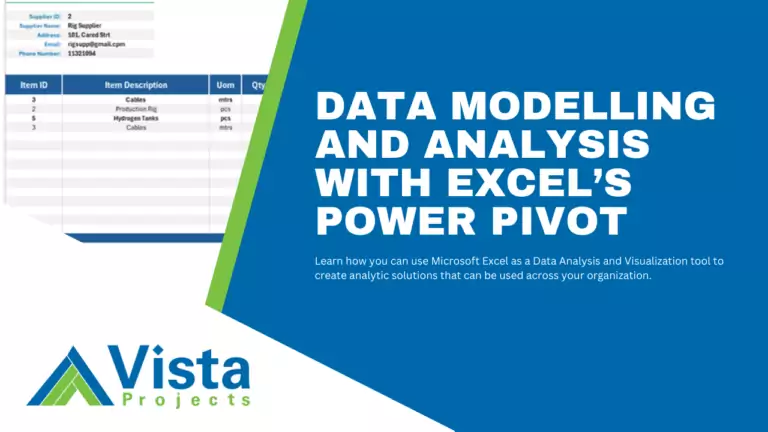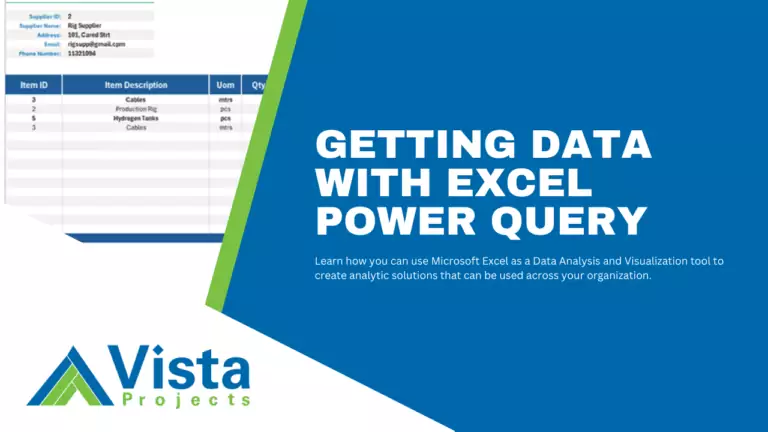In the engineering, procurement, and construction (EPC) industry the meticulous handling of data and processes is paramount to success. Traditionally, Microsoft Excel has been the go-to tool for organizing, analyzing, and visualizing data in these fields. However, as technology advances and the complexity of projects increases, specialized software is emerging as a valuable alternative, offering a myriad of benefits to professionals in the industry.

Enhanced Functionality
Specialized applications tailored for EPC tasks often provide features that go beyond the capabilities of Excel. These applications offer built-in modules for critical functions such as project scheduling, resource allocation, cost estimation, and risk management. With intuitive interfaces and specialized tools, professionals can streamline their workflows, saving time and reducing the risk of errors.
Improved Collaboration
Collaboration is essential in EPC projects, involving various stakeholders such as engineers, procurement specialists, contractors, and clients. Unlike Excel files, which can be cumbersome to share and collaborate on, specialized applications offer cloud-based platforms that facilitate real-time collaboration. Team members can access and update project data from anywhere, ensuring everyone is working with the most current information.

Advanced Analytical Capabilities
While Excel provides basic analytical tools, specialized applications offer advanced analytics and modeling capabilities. These applications leverage algorithms and predictive analytics to forecast project outcomes, optimize resource allocation, and identify potential risks. By harnessing the power of data science, professionals can make informed decisions and mitigate risks before they escalate, enhancing project performance.
Customization and Scalability
Specialized applications are often highly customizable, allowing users to tailor the software to their specific needs and workflows. Whether managing small-scale projects or large-scale enterprises, these applications can be configured to accommodate project requirements and industry standards. Furthermore, as projects evolve and expand, specialized applications offer scalability, ensuring they can grow alongside the organization without sacrificing performance.
Integration with Industry Standards
EPC professionals must adhere to industry standards and regulations to ensure compliance and mitigate risks. Specialized applications are designed with these standards in mind, offering built-in templates, workflows, and reporting mechanisms that align with industry best practices. Integration with industry-specific standards not only enhances efficiency but also ensures consistency and reliability across projects.
Enhanced Visualization and Reporting
Visualizing data is essential for understanding complex relationships and communicating insights effectively. While Excel offers basic charting capabilities, specialized applications provide advanced visualization tools such as Gantt charts, 3D modeling, and interactive dashboards. These visualizations not only make it easier to interpret data but also facilitate communication with stakeholders, enabling more informed decision-making.

Accessibility and Mobility
In today’s demanding environment, professionals need access to project data anytime, anywhere. Specialized applications offer mobile-friendly interfaces and cross-platform compatibility, allowing users to access project information from smartphones, tablets, or laptops. Whether in the office, on-site, or in transit, professionals can stay connected and productive, ensuring projects stay on track.
In conclusion, while Microsoft Excel has long been a staple tool in EPC specialized software offer a host of benefits that can significantly enhance productivity, collaboration, and decision-making. From enhanced functionality and advanced analytics to improved visualization and accessibility, these applications are empowering professionals to tackle complex challenges with confidence and efficiency. As the industry continues to evolve, embracing specialized applications will undoubtedly become essential for staying competitive and achieving success in EPC projects.
Looking for project-driven supply chain management software?
Current SCM is the first of its kind – supply chain management software purpose-built to support the most complex procurement and materials management projects. With materials management and vendor document requirements uniquely integrated into the order, Current SCM provides a unified, collaborative platform to streamline the end-to-end process of project-driven procurement and materials management.
If you are engaged in any direct procurement, technical procurement, project procurement or third-party procurement, Current SCM will improve your procurement and materials management workflow. If you are engaged in all four, Current SCM will revolutionize the way you do business.
Contact our sales professionals at Current SCM today!
Looking for a partner for your EPC project?
Vista Projects is an integrated engineering services firm able to assist with your system integration and engineering projects. With offices in Calgary, Alberta, Houston, Texas, and Muscat, Oman, we help clients tailor engineering phases for the unique needs of their projects. Contact us today!
Looking for your next (last?) great job at a great EPC firm?
Vista Projects is hiring for multiple roles in engineering and system integration – apply today!








